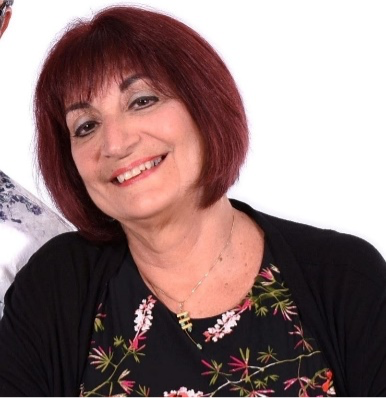
13th Annual Conference
2023
The 13th Annual Ohio River Valley Cytometry Association Meeting
Imaging and Cytometry Research Day
Tuesday, August 29, 2023
Breakfast and registration begin at 8:00 am
Speakers begin at 9:00 am
Send abstracts to RFCC@cchmc.org by August 18th to compete for awards!
Keynote Speaker
John Nolan, PhD
Professor
Scintillon Institute
Title: Cytometry at the Limits of Detection: Measuring Macromolecular Assemblies
John Nolan is Professor at Scintillon Institute where his lab develops new tools for cell and molecular analysis. Previously he was Professor at the La Jolla Bioengineering Institute, and Director of the National Flow Cytometry Resource at Los Alamos National Laboratory (LANL). He received BS degrees in Biology and Chemistry from the University of Illinois, a Ph.D in Biochemistry from Penn State University, and post-doctoral training at LANL. Recent work in his lab has focused on the development of high-resolution spectral flow cytometers and the measurement of synthetic and biological nanoparticles, including extracellular vesicles (EVs). He is founder of Cellarcus Biosciences, which provides products and services for EV and nanoparticle analysis. He is an ISAC past-president and an editorial board member of Cytometry and Current Protocols in Cytometry.
Featured Speaker
Joanne Lannigan, MS
CEO
Flow Cytometry Support Services, LLC
Title: Best Practices in Publishing Full Spectrum Flow Cytometry Data
Joanne Lannigan has been a member of the flow cytometry community since 1982. She received a Master of Science degree in Pathology/Immunology from the State University of New York and a Master of Science degree in Health Services Administration from the New School University in NYC. Ms. Lannigan served as the Associate Technical Director of the Clinical Immunology Laboratory at the University Hospital of the State University of New York for over 17 years, where she managed both the clinical flow cytometry and immune diagnostics laboratories. In 2002, Ms. Lannigan was appointed faculty at the University of Virginia, where she became the Director of the Flow Cytometry Core Facility in the Department of Medicine until 2019, when she retired and started her consulting company, Flow Cytometry Support Services, LLC.
Ms. Lannigan has been a very active member of ISAC since 1996, and has served in several leadership roles including Council, Education Committee Chair, SRL Oversight Committee Chair, SRL Emerging Leaders co-chair, Cytometry Certification Exam Committee Member and Chair, and SRL Educational Content Task Force Chair. She has also served as a mentor to three ISAC Emerging Leaders, been a member of ISAC’s Mission Continuity Committee, and a regular member of the CYTO Meeting Planning and Program Committees. Ms. Lannigan has also been an active developer of workshops and CYTO U content for the educational mission of the society. She is also a recipient of ISAC’s Distinguished Service and Membership Services Awards. Ms. Lannigan is a regular reviewer for the journal Cytometry Part A, has published 49 cytometry related papers, and her 2020 publication of OMIP-069 Forty-Color Full Spectrum Flow Cytometry Panel for Deep Immunophenotyping of Major Cell Subsets in Human Peripheral Blood was awarded the Best Publication of 2020. Her recent interests in flow cytometry have been dedicated to Full Spectrum Flow Cytometry and Nanoflowcytometry.
Local Speaker
Erin Hertlein, PhD
Assistant Professor
University of Cincinnati
Title: Use of high dimensional flow cytometry to understand leukemia disease progression and response to therapy.
Dr. Hertlein is a faculty member in the Division of Hematology and Oncology, and a senior member of the Leukemia Drug Development Laboratory (LDDL). Research within the LDDL is focused on novel drug development and mechanistic understanding of the development of leukemia, primarily chronic lymphocytic leukemia (CLL) and acute myeloid leukemia (AML). Current research programs in the group focus on PTPN11 and DHODH, as well as several other new targets. In general, our research strives to understand 1) the mechanistic contribution of aberrant proteins and signaling pathways on leukemia development, 2) therapeutic mechanisms of novel agents directed at these targets, 3) and 3) the impact on the tumor microenvironment and how tumor-associated immune cells can be manipulated to enhance anti-tumor responses. We use novel animal models of both CLL and AML to characterize how the microenvironment can be subverted to support tumor development which is pivotal to our understanding of cancer development and response to therapy.




